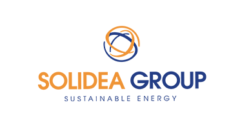A NEW “PAPERCLIP MOMENT” FOR EUROPE
Today, Europe faces a different kind of existential risk—not from military defeat, but from resource dependency, climate instability, and deindustrialisation.
We do not lack scientific knowledge. What we lack is the unified mobilisation of that knowledge, across archives, sectors, and borders, to build a circular, carbon-smart economy.
This is why we are building the SOLIDEArchive.
Just as Paperclip gathered dispersed knowledge to build an industrial future, SOLIDEArchive curates forgotten or underutilised scientific insights—from wartime fuel synthesis to post-war fermentation—and retools them for the 21st century.
Not to build rockets, but to build resilient, decentralised industrial platforms like TITAN and ASMARA, which transform carbon from waste into wealth:
Fuels without refineries
Chemicals without fossil chains
Materials without plastic pollution
Nutrients without industrial agriculture
EINSTEIN’S LETTER VS. THE PRESENT CRISIS
In 1939, Albert Einstein wrote to President Roosevelt warning that Nazi Germany might develop nuclear weapons. That letter catalysed the Manhattan Project—a fusion of science, strategy, and urgency.
Today, we face a quieter, slower, but equally devastating threat: the collapse of climate and material sovereignty.
Who will write today’s letter? And will it be read in time?
SOLIDEA believes the answer lies not in secrecy or military investment—but in open, strategic mobilisation of science and history.
TITAN AND ASMARA: POST-PAPERCLIP PLATFORMS
TITAN is the rural engine: forest waste to electricity, heat, and ethanol through hydrogen producer gas and microbial fermentation.
ASMARA is the urban twin: sorted waste to fuels, proteins, and materials via modular TMF.
Together, they embody what the U.S. once did through Paperclip: turning disparate, scattered expertise into a unified industrial platform, but this time aligned with climate, equity, and circularity.
And like Paperclip, they are future-facing infrastructure—but without the moral cost.
CONCLUSION: FROM INTELLIGENCE TO INDUSTRY
Where Paperclip brought brains to America, SOLIDEArchive brings the brains home to Europe.
Where Paperclip funded rockets, TITAN and ASMARA build the circular biorefineries of tomorrow.
This is our moment to decide: will Europe remain a curator of the past, or a manufacturer of the future?
We believe the answer lies in reclaiming carbon, reclaiming sovereignty, and reimagining industry itself.

